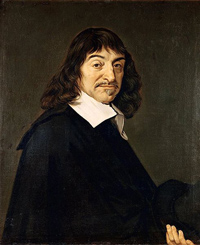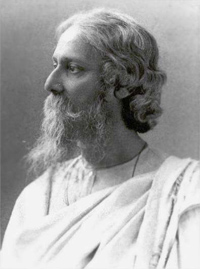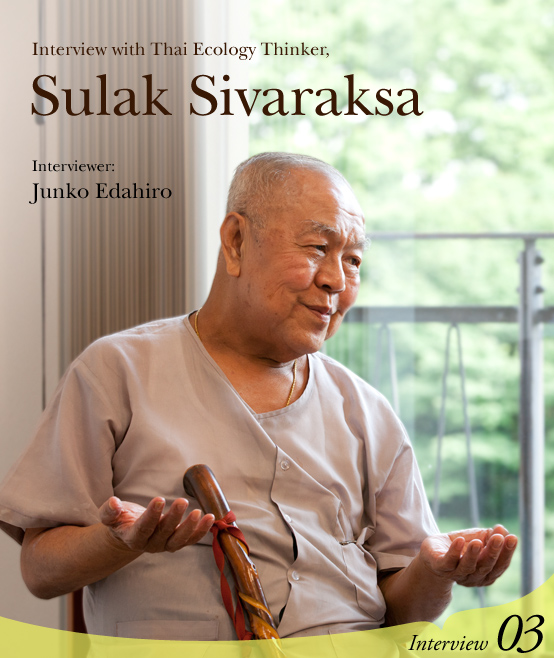- Junko :
- Thank you very much for your time. I have been working in the field of environmental issues for many years. But I came to the point that in order to tackle the root causes of these issues, I have to see the holistic picture and interconnected structure of happiness, environment, economy and society.
- You have been also working in this field for many years. How do you see the current situation in the world? Of course, in terms of the per capita GDP, the world has been getting richer, but at the same time, many people are in a desperate situation.
- Sulak :
- Well, the present situation is that international corporations control everything. Even a superpower like the United States is influenced by international corporations.
- Although they claim to be democratic and serve the people, they don't care about people. For them, people are there to buy things. They use very powerful advertisements to move people, so that people would now embrace the new religion of consumerism. They don't care about the destruction of natural resources. I think this is the main predicament of our present world.
- Junko :
- Right. How did we create this kind of system? Yes, multinational companies have caused much damage, but who should take responsibility?
- Sulak :
- Well, speaking as a Buddhist, everything starts with your idea; either you have the right view or the wrong view. Many people today have the wrong view, that "power is everything," "money is everything," and "ownership is everything."
- Junko :
- Yes, that's right.
- Sulak :
- Those ideas, deep down, go right back to the roots of Western civilization. Modern philosophy started with French philosopher Rene Descartes, who said that everything for us is to think. "Cogito ergo sum." "I think, therefore I am." Well, I think we are bound by thinking.
- Junko :
- Right.
- Sulak :
-
Thought of course is useful and could be harmful as well. "Cogito" means thinking - thinking in order to compete with others and in order to overcome others. In other words, thinking for individualism or egoism. "Cogito," or thinking, for me is more dangerous. We become very selfish. That is why our world is in a predicament.

René Descartes
by Frans Hals (1648)Today, we are in the Cartesian period. We are expected to have proof, to have a scientific basis for what we say. But in the world, there is something beyond proof, logic, and materialism. There is also something spiritual, something transcendental. We in the East used to have different kind of a civilization and different style of life, but we were forced to open our countries to the West. When we opened our countries to the West, we blindly followed the West.
Japan particularly wants to compete with the West. When you defeated the Russians, you felt you could defeat all the Western powers, which resulted in the Second World War. Even though you were defeated in the Second World War, Hiroshima and Nagasaki never taught you anything really. That's why the Fukushima Daiichi Nuclear Power Plant accident occurred. I think it is about time we learn. Something has gone wrong fundamentally. Perhaps it is time you come back to our own roots.
- Junko :
- Right.
- Sulak :
-

Rabindranath Tagore
(Indian poet and thinker)This year (2011) happens to be the 150th anniversary of the Rabindranath Tagore's birth. Tagore said that the difference between India and Asia to the West is that the West concentrates on the city. The word "civilization" came from the Latin word "cives." But we in the East, particularly from the Indian tradition, regard the forest as our source of civilization.
In Buddhism, it is said the Buddha left the city and went into the forest, wandering around for six years. We believe he became enlightened and then became Buddha in the forest underneath the Bodhi tree.
So the wisdom is in the forest, because the forest has diversity, or I say it has harmony. If we learn from the forest, and if we learn from nature, I think we can expect to grow properly. We should not exploit nature, but love nature and obey nature. Buddha could talk to even poisonous snakes. We can learn from trees. I think it's about time we learn from nature.
Buddha said that human beings can't live without trees. For trees to grow, they need four elements.
First, they need good seeds.
Second, a seed needs to be adapted to the land, to the soil, in order to grow. When it grows, it needs patience, along with storms, rains, and the sun. When the tree grows, it does not want anything for itself but becomes very generous to birds, to bees, and to animals. It provides leaves, creates shade, and offers fruit.
Third, we must be truthful to ourselves. But nowadays, we are hypocritical, untruthful. So, we have to be truthful, as well as having good seeds and being able to adapt to the environment. But without giving the truth, we have adapted so much, giving up the truth. That's why we err.
Finally, we need patience. If human beings really grow, human beings will be generous like trees. We'll give to animals or fellow human beings. But now we don't give. We want to take. That's something fundamentally wrong. That's why I think we ought to learn from Tagore and the Buddha whom Tagore learned from.
Japan used to be a Buddhist country, but now Buddhism in Japan is only ceremonial. I think it is about time, we need to come back to the essence of Buddhism. The essence of Buddhism is how to be awakened. Buddha means awaken. Awaken from greed, hate, and illusion. Once we become selfless, we realize that we are interconnected. You and I are interconnected. We are brother and sister, like completing. Well, in the Cartesian concept, you and I are complete.






